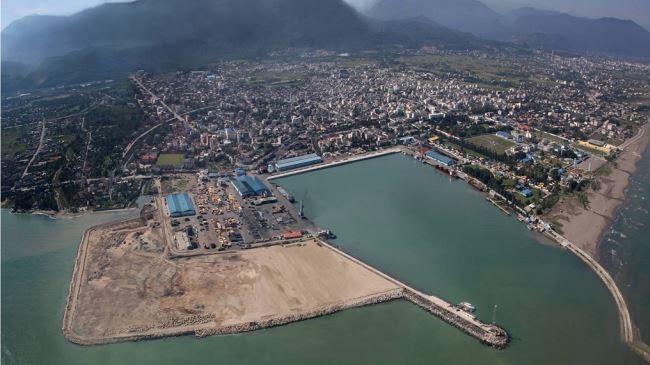[vc_row][vc_column][vc_column_text]When Iranian and Indian leaders signed the agreement to jointly develop the Chabahar Port—some 1,800 kilometers south of Tehran—last summer, it was heralded as a project that would transform relations between the two countries.
“We should perceive the agreement as an engine of growth, and I believe it is the beginning of a new era in the Indo-Iran relationship,” Nitin Gadkari, India’s roads and shipping minister, had declared on May 22, 2016.
A day later Indian Prime Minister Narendra Modi and Iran’s President Hassan Rouhani signed on the dotted line, formalizing New Delhi’s commitment of $500 million toward the project.
Nine months on, Chabahar seems dead in the water: The Indian and Iranian governments are now squabbling over delays, even as newly-elected US President Donald Trump’s hawkish stance toward Tehran threatens to hamstring the project, reads an article published by qz.com.
The ongoing diplomatic finger-pointing is a curious affair. Indian officials insist that New Delhi has $150 million ready for disbursement but the Iranians have not completed the paperwork necessary to release the funds, The Economic Times newspaper reported.
The Iranians told the newspaper that the delay was from the Indian side, without explaining further.
The Indian government had set aside $235 million line of credit for the project since 2015 but is unable to release the first tranche of $150 million, Indian officials say.
“The funds cannot be released without paperwork and this has not yet reached the Indian government. Even reminders from EXIM Bank to Iran have not helped,” a person familiar with the matter told the newspaper.
Indian sources say New Delhi had offered to release the first portion of the line of credit within four months of the Iranian proposal on the port expansion and development plan, but the proposal has yet to come.
The project was earlier delayed when the Iranian side unilaterally changed terms and conditions on the eve of the signing of MoU in 2015 by introducing a local stakeholder without consulting India, according to Indian sources.
Conceived in 2003, the interruptions in the implementation of Chabahar project belie its importance: India views it as a conduit to bypass Pakistan and make deeper inroads into energy-rich Iran, Afghanistan, Central Asia and beyond.
It is also a counterbalance to rising Chinese influence in the region; Beijing has built a deepwater port in Pakistan’s Gwadar, only 72 kilometers from Chabahar, which became operational last November.
Backroom bickering aside, India’s pursuit of Chabahar faces another obstacle: deteriorating US-Iran ties.
After the thaw during his predecessor’s term, relations between Washington DC and Tehran have nosedived since Trump took office. There has been a visa ban on Iranians (along with six other Muslim-majority countries), which has been temporarily overturned by a US court, and fresh economic sanctions on Iranian individuals and companies following missile tests.
“Iran has been formally put on notice for firing a ballistic missile,” the US president said in a tweet.
Such a situation puts India in a tricky spot: It wants to do business with Iran, but not at the cost of disrupting ties with the new US administration.
“The Trump administration will be a difficult partner to deal with on this issue,” Harsh V Pant, professor of International Relations at King’s College London, told the Mint newspaper.
Ports and Management Organization is Iran’s nodal authority to implement the project. Indian officials say New Delhi is not unduly perturbed over the impact of US sanctions on Iran’s missile program.
“The sanctions are not targeting Iran’s PMO that is in charge of Chabahar Port. However, the government here is keeping a close watch if other sectors are being targeted, which might impact Indo-Iranian economic partnership,” said a person who requested not to be identified.
Source: Financial Tribune[/vc_column_text][/vc_column][/vc_row]




